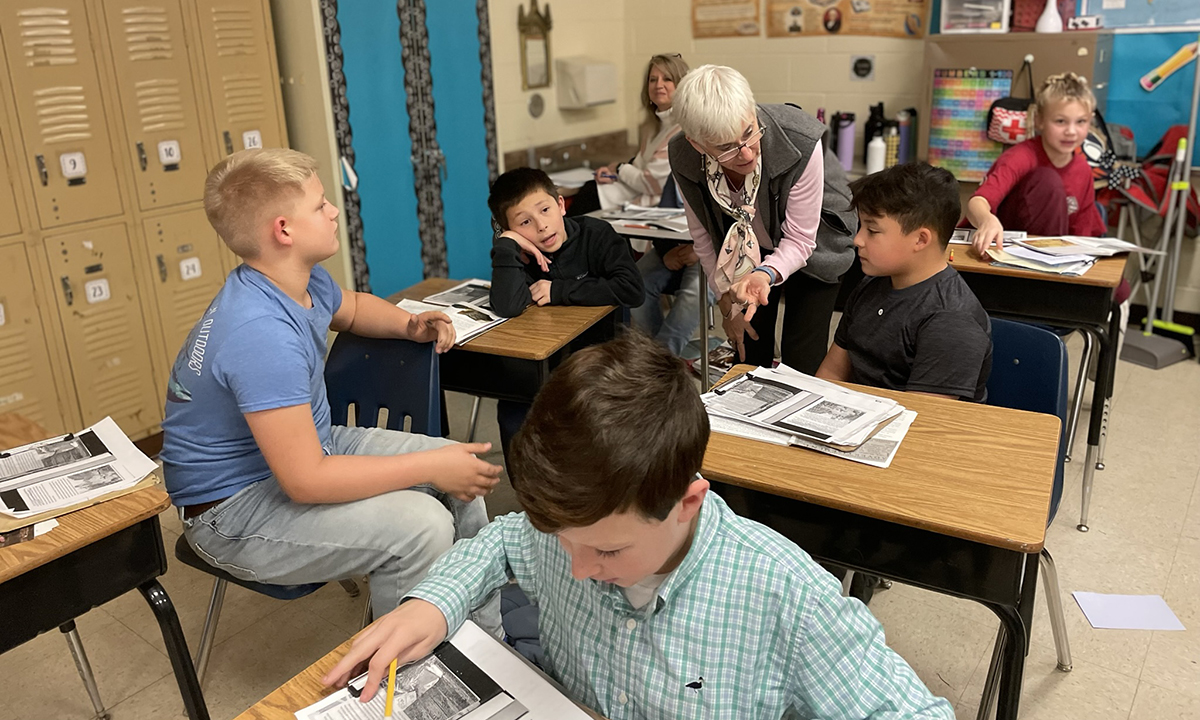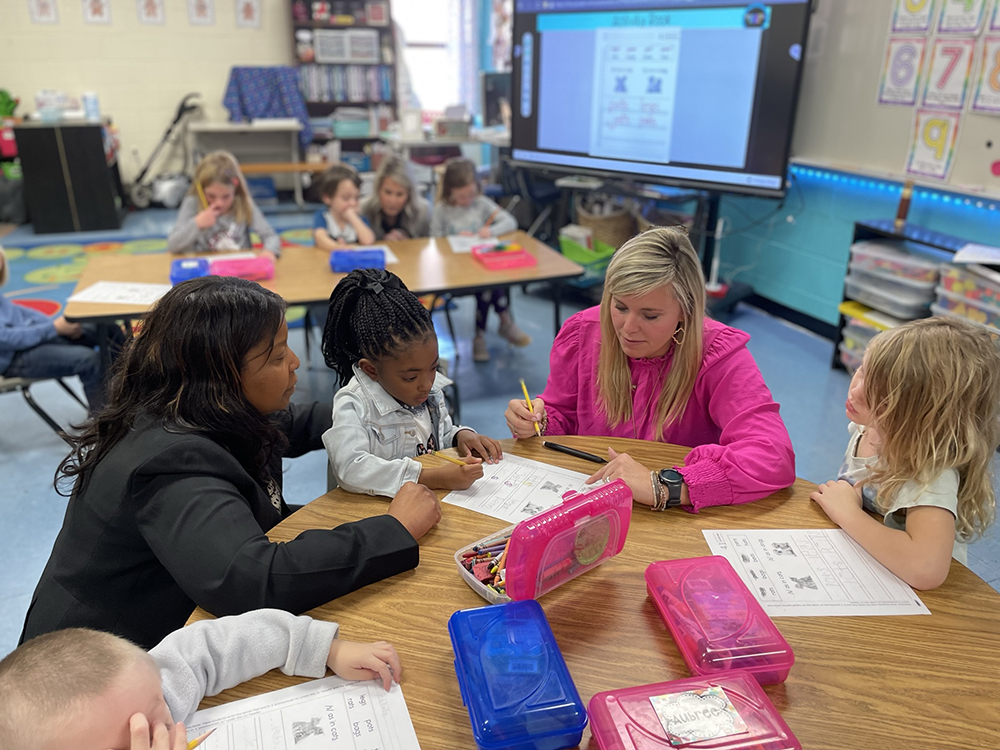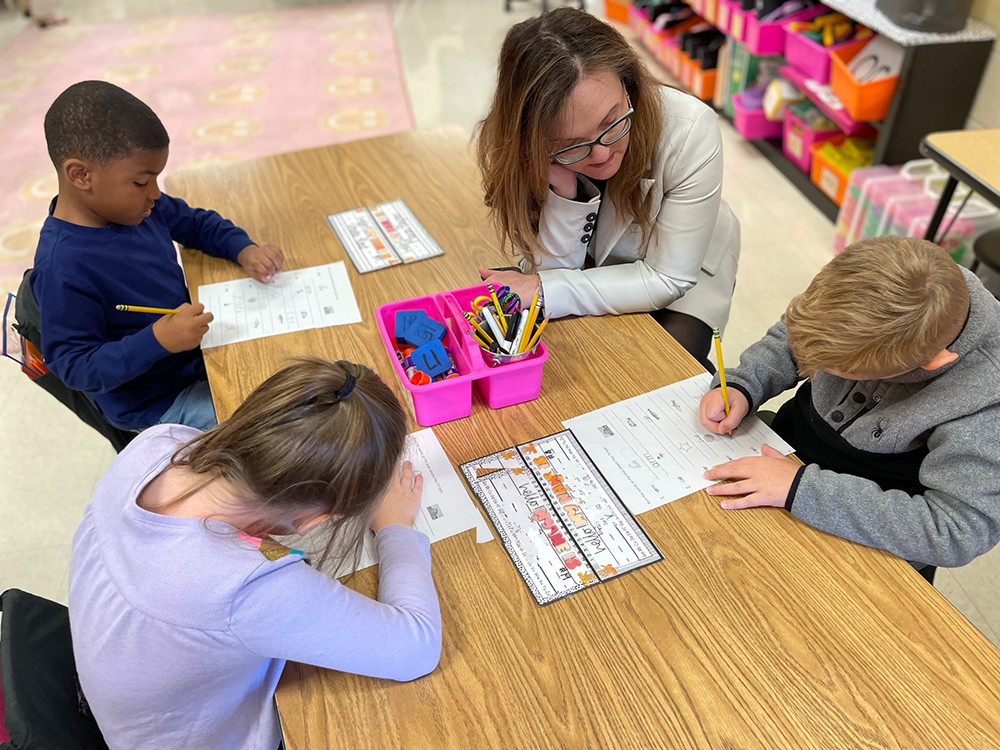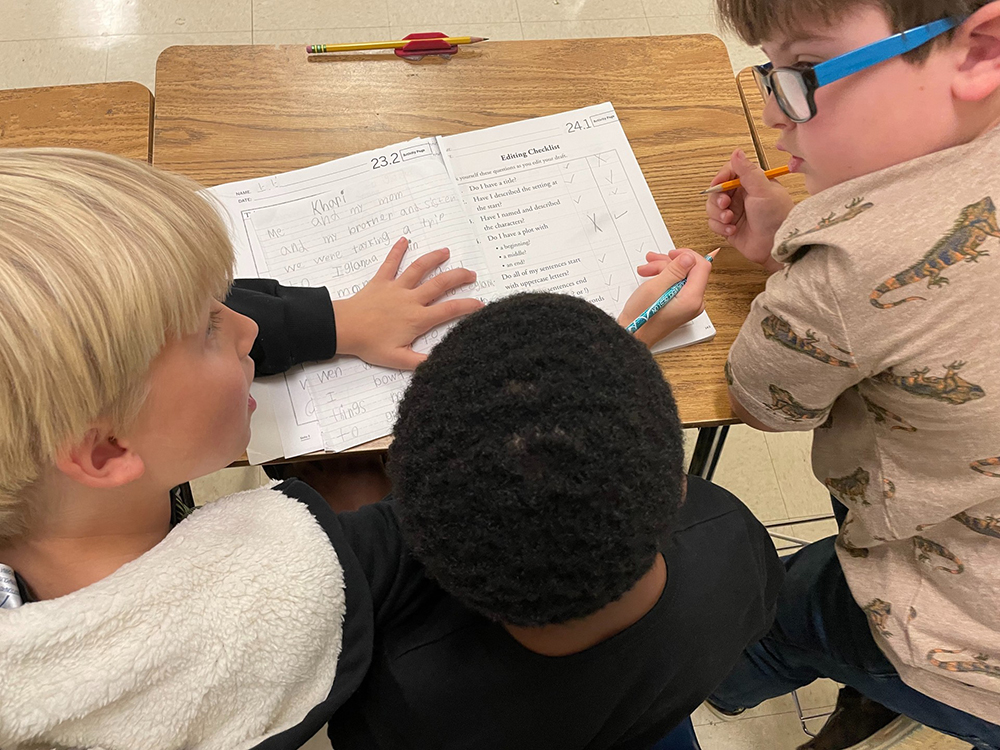Using High-Quality Curriculum Doesn’t Mean You Can’t Still Have Fun Learning
A Tennessee teacher learns that her high-spirited, engaging lessons don’t have to vanish with the implementation of a challenging English curriculum

Get stories like this delivered straight to your inbox. Sign up for The 74 Newsletter
This is the third in a series of three articles from a Knowledge Matters Campaign tour of school districts in Tennessee in the fall of 2022. In this piece, LaTasha Bolton, a fourth grade teacher at Brighton Elementary School in Tipton County Schools, recounts how her district’s implementation of high-quality curriculum, Core Knowledge Language Arts, has both challenged and transformed her craft. Follow the rest of our series and previous curriculum case studies here.
In the past, I considered curriculum to be a general guide to daily lessons — thick books with weekly plans that align to the state standards and are there to reference throughout the year. My students used to get a kick out of the anecdotes I would add to each lesson. I could grade the informal assessments quickly and then moved on to the next lesson.
Having fun in class was always something I strived for. I got pretty expert at making theme, point of view, and text structure entertaining. I’m theatrical by nature and my students thrived on how entertaining my classes were. But now, after three years of using the high quality Core Knowledge Language Arts Curriculum, I understand, regretfully, this does not mean I always had a successful classroom. How much my students like my personality is not something that’s on formal assessments that evaluate literacy proficiency.

After receiving substantial implementation support from district and school leaders, and having time to work with my colleagues on making CKLA impactful, I still have a highly spirited, engaged classroom; it just has more depth. In the past, I think my students knew what they were learning and why — but now they have discussions that lead to them being more independent thinkers. Being more independent in their thinking has led to their being more detailed writers. Students who are capable of complex discussions about what they’re reading, independent thought and detailed writing are usually also successful on end-of-year tests!
When our district selected CKLA as our English language arts/literacy curriculum from the state’s list of approved textbooks, I was lukewarm about the decision. I am the center of my students’ world when they’re in my room — the most knowledgeable, the expert. Students loved coming to my reading class because they enjoyed all my real-world connections, the jokes I told, the songs I sang. Giving me a nearly scripted curriculum felt like it would rob me of the creative engagement skills I had perfected over my 12 years as a teacher.
I was pretty convinced this could go badly — if not for the district, for me personally. How would I ever get to the level of comfort by the time my new students arrived at the classroom door with this new teaching material that I’d felt in my classroom for years?
Thankfully, I work in a district that has a “we are in this together” culture that allowed teachers to learn how to implement this new curriculum together. First, our district leaders brought in CKLA experts to train us on how to use everything from the teacher’s manuals, to the student books, to the online resources. This launch training showed us that we didn’t need to be experts, because everything was right there for us.
Then, our principal prioritized watching other teachers execute lessons. At first, we cringed at the thought of being watched so closely, but as we walked away with tons of usable feedback, we began to welcome these visits. That experience became one of the most unique learning opportunities I’ve had as a teacher; it has been invaluable. Obviously, it was great to see — and celebrate — the success of other teachers. But it was also so helpful to witness their struggles with things like time management and student misconceptions, and to be a part of a team providing and receiving feedback in real time. It really increased my optimism about the process and helped me understand that we were all learning together.
Ultimately, implementing the curriculum began to feel more like little sprints we were perfecting together, a little at a time, instead of a huge mission we needed to accomplish on our own.

Once we’d gotten our feet wet after the first year, district leaders decided it was time to bring in outside professional learning support to hone our ability to implement the curriculum even better. TNTP, formerly known as The New Teacher Project, was identified as our partner. They were able to show us how much planning we were still trying to do ourselves when, in fact, CKLA had done it for us — we just needed to focus on our delivery. The TNTP training was largely designed to help us use our planning time to intellectually prepare. It was also done with teachers from all over the district, which was powerful. We took a deep dive as grade level teams into what the students should get from the lessons and how we would know they understood the standards.
I am fortunate to work in a district that really understands the need for this time to intellectually prepare for an upcoming lesson. We are given two times each week to plan with our grade level reading teachers, which has really contributed to a culture of collaboration.

Whereas I would have put myself at a “5” on a 10-point scale of my enthusiasm about the district-wide ELA adoption, I am now all in. That attitude shift didn’t just happen because I wanted to be a team player. It happened because I was never left alone throughout the transition process. From district leaders bringing in experts to train us, to our visits watching other teachers model lessons, to the way we have been effectively coached to plan, it has all helped me to appreciate the many ways in which our curriculum can lead to student success.
And, as my students are having more intelligent and thought-provoking conversations about texts, they are showing increased proficiency on standard assessments. Our school has seen a dramatic drop in the number of third through fifth grade students who need intervention referrals. Special education placements are also down considerably since we implemented CKLA.
Our district prides itself on supporting teachers and creating strong teams, and nowhere has that been on better display than with our ELA curriculum implementation. I have no doubt this is the key to the literacy success we’re beginning to experience!
Get stories like these delivered straight to your inbox. Sign up for The 74 Newsletter

;)